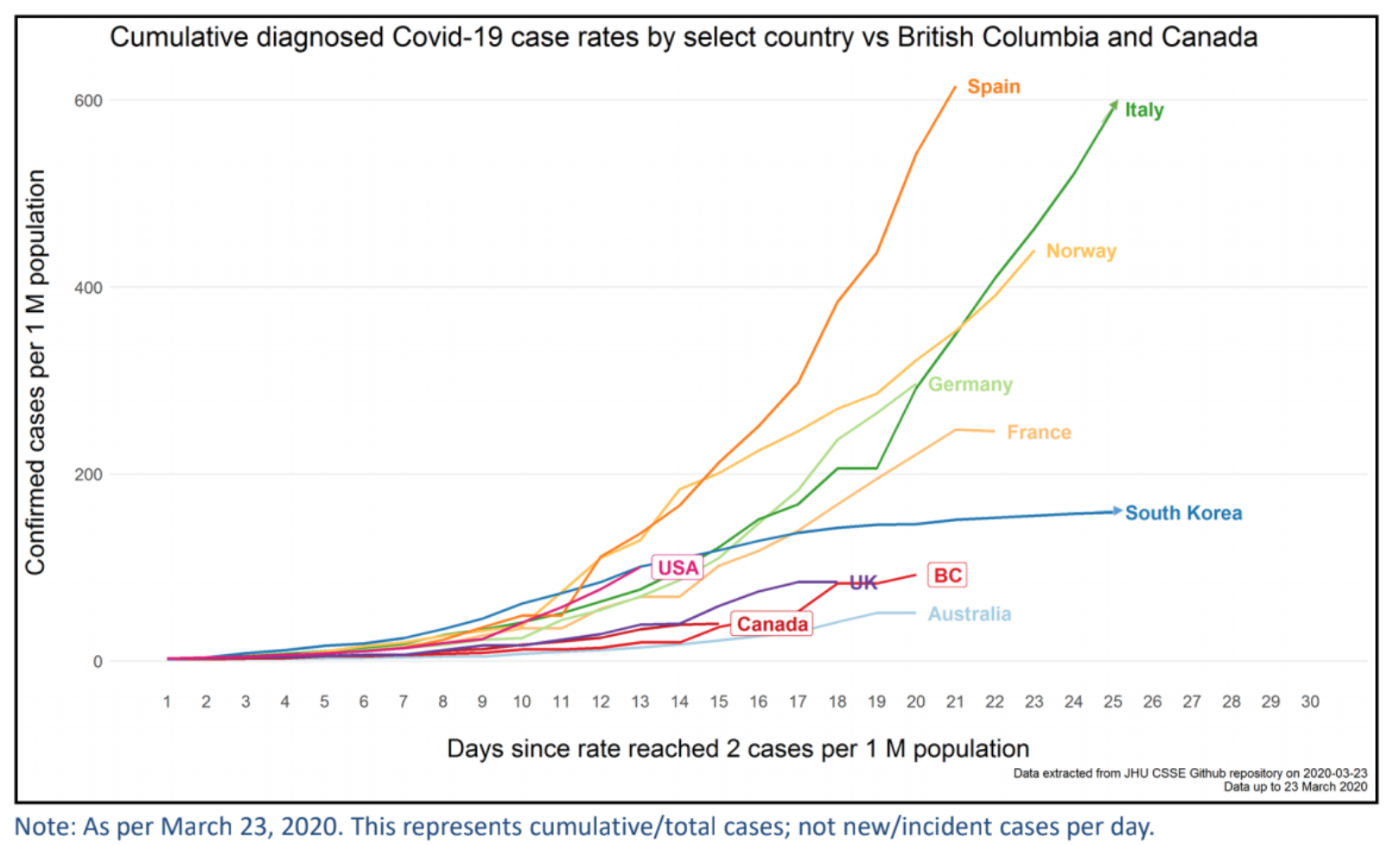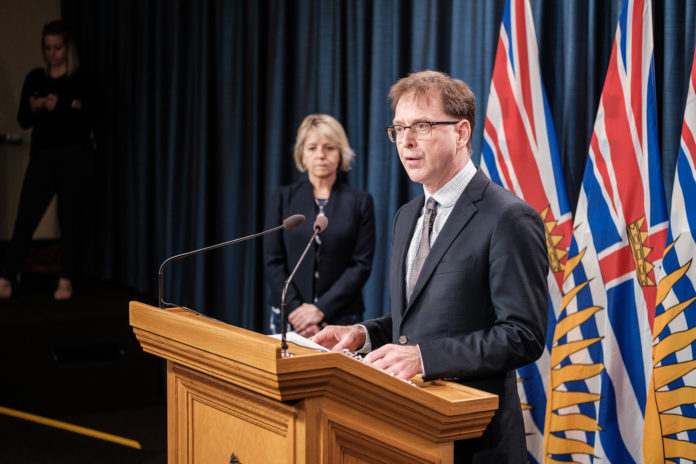While remaining cautiously optimistic about British Columbia’s rate of COVID-19 growth, the Ministry of Health continues to prepare for the worst case scenario: a Northern Italy-level epidemic.
In their assessment of the province’s capacity to meet the demands of the pandemic, health authorities examined the number of critical care spaces – ICUs and acute care units – as well as regular beds across hospitals in B.C.
“A key move that we made was 10 days ago when we decided to defer all elective surgeries to open up beds,” said Deputy Minister of Health Stephen Brown.
“As of yesterday 3,900 beds opened up in hospital acute capacity, upwards of 371 critical care beds available. This acts as a reference point for capacity.”
The models created by a Provincial Critical Care Working Group, BCCDC, and the PHSA indicate that there are currently a total of 914 ventilator-capable critical care beds in hospitals across B.C.
At the moment, the province currently has a total of 1,242 ventilators available for adults requiring critical care. At the start of the epidemic, the ministry purchased 120 additional ventilators, most of which will be delivered in the coming weeks.
While models show that B.C. is on track to have an outbreak similar to South Korea, which plateaued after the introduction of restrictive measures like physical distancing, travel bans and business closures, the Ministry of Health is still preparing for the worst case scenario.

“From an abundance of caution all health authorities are planning for additional bed capacities so we can further take patients out of hospital to additional sites in that extreme circumstance. This would be for patients who are low acuity and in recovery,” said Brown.
Therefore if there is an unexpected surge of cases, the province is prepared to move less serious COVID-19 patients and regular patients to off-site beds in order to free up spaces for more serious patients.
These off-site spaces are now being prepared, first in the Vancouver Coastal Health authority and more in the coming weeks.
All health authorities have been instructed to prepare four to six weeks of staffing schedule at hospitals.
Authorities are also adding physicians and nurses who have come out of retirement, as well as trainees in their second, third and fourth years to the health care system to assist in non critical areas.
The primary hospitals designated to treat COVID-19 patients on Vancouver Island at this time are the Royal Jubilee Hospital in Victoria and the Nanaimo Regional General Hospital in Nanaimo.
According to Dr. Henry, even if the epidemic in B.C. reached the levels they have in northern Italy, the Ministry of Health believes the health care system would be prepared to treat those who need it in most cases.
Based on a model that charts the number of cases in the province, B.C. reported a shift in trajectory on March 22nd, as the average daily increase in cases reduced by half from 24% down to 12%.
As the days progress, the number of new cases found in B.C. have started to be lower than the number of cases authorities expect to see.
See all the latest updates about the global COVID-19 pandemic on Vancouver Island
Based on the latest updates, there are now 725 cases of COVID-19 in B.C. including 52 on Vancouver Island.
The federal government recently announced an $82 billion assistance package for Canadians and businesses struggling financially during the global pandemic. This was followed by a $5 billion relief package announced by the B.C. provincial government.
This includes a $2,000/month package for four months for all Canadians who have lost income due to COVID-19, and $500/month assistance package for renters in B.C..
The provincial government also announced the indefinite suspension of all in-person classes at K-12 schools in B.C., closure of all bars and restaurants, and a moratorium on evictions among other steps to enforce social distancing measures.
Canada has tightened its borders and is denying entry to people who are not Canadian citizens or permanent residents in Canada.
U.S. citizens are no longer an exception to this rule, and non-essential travel between U.S. and Canada has been temporarily banned as of March 21st. Moreover international flights have now been restricted to international airports in Toronto, Montreal, Vancouver, and Calgary.
The BCCDC has set up a 2019 novel coronavirus telephone information line at 1-833-784-4397 for those who have further questions about this disease.
Anyone concerned that they may have been exposed to, or are experiencing symptoms of the novel coronavirus, should contact their primary care provider, local public health office, or call 8-1-1.
The Province has also created the 1-888-COVID-19 line to connect British Columbians needing non-medical information about the coronavirus pandemic.
As of the time of publication, the total number of COVID-19 patients worldwide has risen to 584,992.
Over 26,800 people have died from the illness and 131,428 have made a full recovery.


